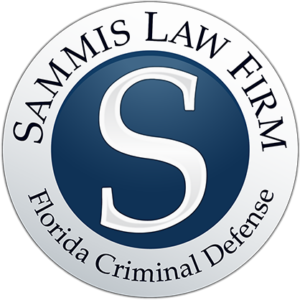Trafficking in Hydrocodone
Hydrocodone is the fifth most commonly prescribed pain medication in the United States. Prosecutions for trafficking this controlled substance are common because the medication is highly addictive and requires the user to increase the amount used over time.
Depending on the way hydrocodone is prescribed, it can be either a Schedule II or Schedule III drug. Hydrocodone is defined as a Schedule III drug if the dosage unit (the pill) contains “not more than 15 milligrams” of the drug, with recognized therapeutic amounts of active ingredients that are not controlled substances.
Drug trafficking is a first-degree felony punishable by up to 30 years in Florida State Prison with minimum mandatory penalties that are more severe than for the sale or delivery. The penalties for Trafficking in Hydrocodone depend on the aggregate weight of the Hydrocodone pills, not by the combined dosage, including:
- 28 to 50 grams of Hydrocodone – up to 30 years in prison with a 3 year min/man with a $50,000 fine;
- 50 to 100 grams of Hydrocodone – up to 30 years in prison with a 7 year min/man with a $100,000 fine;
- 100 grams to 300 kilograms of Hydrocodone – up to 30 years in prison with a 15 year min/man with a $500,000 fine; and
- 300 grams to 30 kilograms of Hydrocodone – up to 30 years in prison with a 25 year min/man with a $750,000 fine.
The penalties are more severe for armed trafficking.
Attorney for Trafficking in Hydrocodone in Tampa, FL
If you were charged with any drug trafficking crime in Tampa, Hillsborough County, then contact an experienced criminal defense attorney at the Sammis Law Firm.
Our attorneys are experienced in fighting serious drug trafficking crimes, including trafficking in hydrocodone throughout the Tampa Bay area including Pinellas County, Pasco County, Hernando County, and Hillsborough County, FL.
Our main office is located in downtown Tampa, FL. We have a second office located in New Port Richey in Pasco County.
Call (813) 250-0500 today.
Elements for Trafficking in Hydrocodone
To prove the crime of Trafficking in Hydrocodone, the prosecutor with the State Attorney’s Office must prove the following three elements beyond all reasonable doubt:
- The defendant knowingly possessed, sold, purchased, manufactured, delivered, or brought into Florida a certain substance.
- The substance was Hydrocodone.
- The Hydrocodone weighed 28 grams or more.
Florida Statute for Trafficking in Hydrocodone
The Florida Statutory Scheme Provides:
Any person who knowingly sells, purchases, manufactures, delivers, or brings into this state, or who is knowingly in actual or constructive possession of, 4 grams or more of any morphine, opium, oxycodone, hydrocodone, hydromorphone, or any salt, derivative, isomer, or salt of an isomer thereof, including heroin, as described in s. 893.03(1)(b), (2)(a), (3)(c) 3., or (3)(c)4., or 4 grams or more of any mixture containing any such substance, but less than 30 kilograms of such substance or mixture, commits a felony of the first degree, which felony shall be known as “trafficking in illegal drugs,” punishable as provided in s. 775.082, s. 775.083, or s. 775.084. If the quantity involved:
a. Is 4 grams or more, but less than 14 grams, such person shall be sentenced to a mandatory minimum term of imprisonment of 3 years, and the defendant shall be ordered to pay a fine of $50,000.
b. Is 14 grams or more, but less than 28 grams, such person shall be sentenced to a mandatory minimum term of imprisonment of 15 years, and the defendant shall be ordered to pay a fine of $100,000.
c. Is 28 grams or more, but less than 30 kilograms, such person shall be sentenced to a mandatory minimum term of imprisonment of 25 calendar years and pay a fine of $500,000.
Additional Resources
Thresholds for Trafficking in Hydrocodone and Oxycodone – Visit the website of the Florida Senate to find a summary of CS/SB 360 pertaining to the “Sentencing for Controlled Substance Violations” prepared by the Appropriations Committee and the Criminal Justice Committee. Effective July 1, 2014, the bill increased the minimum weight threshold for trafficking in oxycodone (from 4 grams to 7 grams) and hydrocodone (from 4 grams to 14 grams under s. 893.135, F.S., the drug trafficking statute. The purpose of the bill was to lessen the sanctions for anyone accused of unlawfully possessing or selling relatively small quantities of oxycodone or hydrocodone.
This article was updated on Thursday, December 30, 2021.















